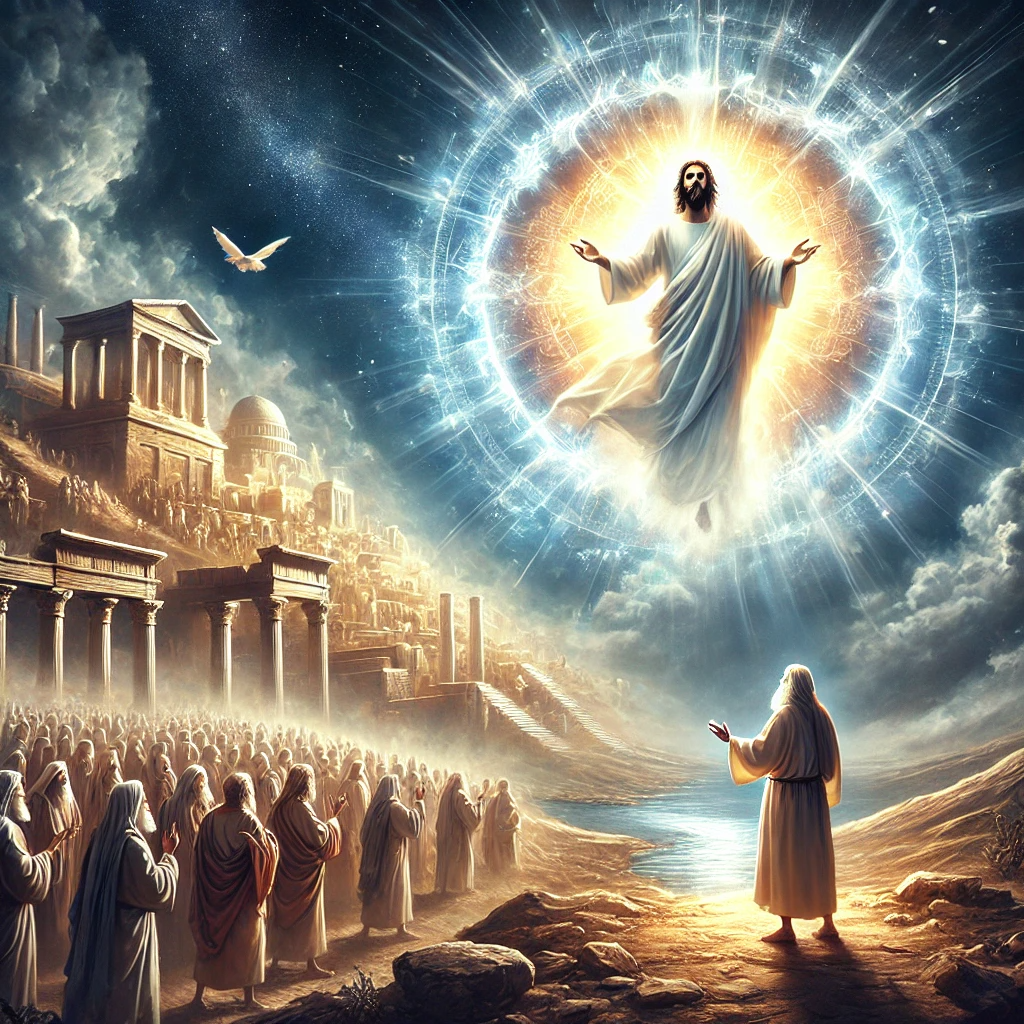Why the Jewish People Crucified Jesus on the Cross
The life and death of Jesus Christ is one of the most impactful stories in human history. His death, in particular, has been central to Christianity, but also has broader implications for history, culture, and religion. One of the most commonly asked questions is: Why did the Jewish people crucify Jesus on the cross?
To answer this, we need to understand the religious, social, and political context of the time, as well as the reasons that led the Jewish leaders to have Jesus tried and sentenced to death.
1. Jesus: A Threat to the Religious Authorities
One of the primary reasons that the religious leaders of the time decided to hand Jesus over to the Roman authorities was because they saw Him as a threat to their authority and power.
Jesus was not just a teacher or a healer; He was a radical figure who challenged the status quo. He frequently criticized the religious leaders of the time, particularly the Pharisees and Sadducees, accusing them of hypocrisy, greed, and moral corruption. He called for a return to a deeper, more sincere faith in God, criticizing the rituals and external displays of piety that had become commonplace.
This criticism didn’t sit well with the Jewish authorities, and they saw Jesus as a danger to the religious order they had upheld for centuries. Furthermore, Jesus claimed to be the Son of God and the Messiah, which the Jewish leaders viewed as blasphemy, a punishable offense under Jewish law.
2. Jesus as a Challenge to Political Authority
Jesus wasn’t just a religious threat; His message was also seen as a challenge to political authority. At the time, the Jewish people were living under the rule of the Roman Empire, and any movement that suggested the arrival of a Kingdom of God could be interpreted as a threat to the Roman rulers. Jesus was speaking of a new kingdom—one that was not of this world, which sounded to the Romans like a potential revolt against the empire.
The Jewish leaders, recognizing the growing popularity of Jesus among the people, feared that He might incite an uprising that would draw the attention of the Roman authorities. The Romans were known for their harsh response to any form of rebellion, and the Jewish leaders feared that Jesus’ growing influence could lead to violence and the destruction of their own religious system.
3. The Crucifixion: The Roman Execution Method
In the Roman world, the death on the cross was a form of execution reserved for the worst criminals, particularly those accused of insurrection against the state. The Jewish authorities did not have the power to execute anyone under Roman rule, so they had to turn to the Roman governor, Pontius Pilate, to carry out Jesus’ sentence.
The cross was a symbol of shame and humiliation, and crucifixion was designed not just to execute but to publicly disgrace and terrorize. The Jewish leaders brought Jesus to Pilate with accusations of claiming to be “King of the Jews,” which they knew would be seen as an act of rebellion by the Roman authorities.
The decision to have Jesus crucified was therefore not only a religious decision but also a political one, aimed at silencing a figure they saw as a threat to both their authority and to the Roman Empire.
4. Jesus' Death: The Fulfillment of God's Plan
From the perspective of Christianity, Jesus’ crucifixion was not a failure or a tragic end to His mission; it was a crucial part of God’s plan for redemption. Christians believe that Jesus, though rejected by His own people and condemned to death, willingly accepted the cross as a means of atoning for the sins of humanity. His death was a sacrifice, through which He took upon Himself the sins of the world, offering forgiveness and salvation to all who believe in Him.
According to the New Testament, Jesus knew that His death would be necessary to fulfill the Scriptures and to bring about the salvation of humankind. He foretold His own death and understood the significance of His sacrifice, even as He faced the rejection of His own people.
5. A Sacrifice with Eternal Significance
Though the Jewish leaders sought to eliminate Jesus because of His perceived threat to their power and beliefs, from the perspective of Christianity, His death on the cross was the ultimate act of love and redemption. Jesus, as the Son of God, offered Himself as the perfect sacrifice for the sins of humanity, thus offering the possibility of reconciliation with God.
Jesus' death on the cross was not simply a political execution; it was the pivotal moment in Christian salvation history. Through His suffering and death, Christians believe that Jesus opened the way for all people to be reconciled with God, offering forgiveness and eternal life to those who trust in Him.
The decision by the Jewish leaders to have Jesus crucified was rooted in a combination of religious and political reasons. They saw Him as a threat to their authority, their beliefs, and the stability of their relationship with the Roman Empire. Yet, from the perspective of Christianity, Jesus’ death was not the end of His mission, but the fulfillment of God's plan to offer salvation to all of humanity. The cross, though an instrument of shame and death, became the symbol of love, forgiveness, and eternal life.
The story of Jesus' crucifixion reminds us that, while rejection and suffering are part of the human experience, God’s love is greater and offers hope for redemption through Jesus Christ. The cross represents not only the pain and sacrifice of Jesus but also the profound victory over sin and death that Christians believe He achieved through His resurrection.
As we reflect on Jesus' sacrifice, it can be helpful to remember His message through various Christian expressions. Whether it’s by wearing Christian t-shirts, sharing Christian gifts, or reading a Christian book, each of these small acts helps to spread His message of love and salvation. If you’re looking for a place to deepen your faith, visiting a Christian store can offer a wide range of inspirational materials to encourage and uplift you in your spiritual journey.





















